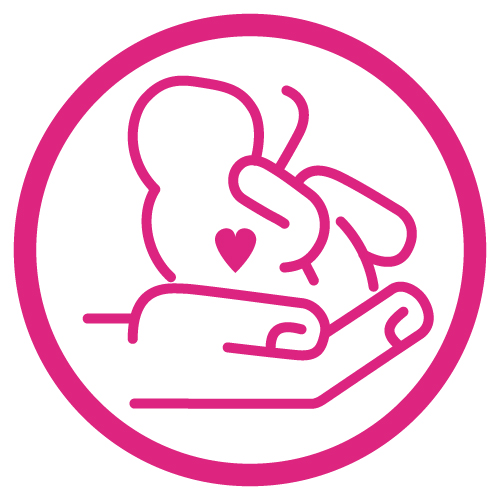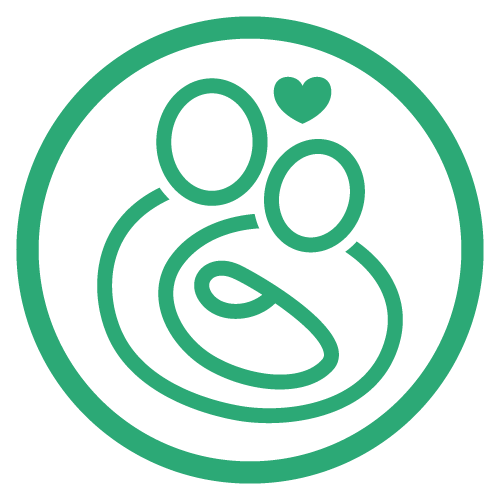 IBCLC Detailed Content Outline: Pharmacology and Toxicology Focused CERPs - Section IV
IBCLC Detailed Content Outline: Pharmacology and Toxicology Focused CERPs - Section IV
Access CERPs on Pharmacology and Toxicology for the IBCLC Detailed Content Outline recertification requirements. Enjoy convenient on-demand viewing of the latest Pharmacology and Toxicology focused IBCLC CERPs at your own pace.

Hold the Meds: A Guide to Toxicities of Common NICU Medications

Pavel graduated from Purdue University with a BS in Medicinal Chemistry and Molecular Pharmacology and Doctor of Pharmacy. He completed his general residency at Parkview Medical Center and Pediatric Residency at University of Chicago. He is a neonatal ICU (NICU) and antimicrobial stewardship program clinical pharmacist at Nationwide Children's Hospital (NCH) in Columbus, OH. Pavel precepts pharmacy residents and students from several colleges of pharmacy while also serving as a preceptor to international pharmacy scholars from Europe, Africa, and Middle East. He is currently involved in a multicenter study to investigate barriers, enablers and opportunities for implementing neonatal antibiotic stewardship in public and private hospitals in South Africa. He is also involved in implementation of neonatal antimicrobial stewardship programs in several hospitals in Lebanon. Pavel is the principal investigator on the study evaluating interventions to reduce antibiotic use among surgical patients in the NICU: The NO-More-AntibioticS and Resistance in Surgery (NO-MAS-R-S) Study.

Legalization of Marijuana: Unintended Consequences on Our Most Vulnerable Patients

Dr. Wallman is an Assistant Professor at the Loretto Heights School of Nursing and the Coordinator of the Neonatal Nurse Practitioner Program. She has over 30 years’ experience as an NNP with clinical experience ranging from low to high risk neonates including air transport. She has had a particular interest in perinatal substance use disorders and the impact on the neonate and family. She has been the co-chair of the Perinatal Substance Abuse Advisory Panel for UCHealth North and on the Colorado Substance Exposed Newborn Steering Committee since 2008. In 2015 she was the recipient of the Colorado Nightingale Award and in in 2006 the Distinguished Service in Neonatal Nursing Award from the National Association of Neonatal Nurses. She also served as the only nurse in the nation on the American Academy of Pediatrics Committee on Fetus and Newborn where best practice standards for the care of neonates are developed and she currently serves on the Editorial Board of NeoReviews for the American Academy of Pediatrics.
States with legalized marijuana have faced increased use of marijuana by women during the perinatal period and complexities in decision making regarding management of infants exposed to marijuana through pregnancy and breastfeeding. Staff and family often report inconsistent messaging and practice management patterns among staff and providers in response to these patients. Results of a comprehensive literature search will be utilized to discuss the development and implementation of best practice strategies to address the unintended consequences of increased use of THC during pregnancy and breastfeeding correlating with the legalization of THC. This presentation will provide a review of current scientific evidence available to support the development of guidelines for consistent messaging and management of these newborns and their families during pregnancy and while breastfeeding.

View Details / Enroll

View Details / Enroll


Jayashri KULKARNI commenced her appointment as Professor of Psychiatry, The Alfred and Monash University in 2002. She directs a large psychiatric research group, the Monash Alfred Psychiatry Research Centre (MAPrc), with approximately 150 staff and students. The Centre is dedicated to discovering new treatments, new understanding and new services for people with a range of mental illnesses.
Jayashri Kulkarni completed her MBBS degree in 1981 at Monash University and worked mainly in Emergency Medicine before deciding to specialise in Psychiatry. She became a Fellow of the Royal Australian and New Zealand College of Psychiatrists in 1989 and was awarded a PhD from Monash University in 1997 for her thesis “Women and Psychosis”. Jayashri has pioneered the novel use of estrogen as a treatment for schizophrenia and is internationally acknowledged as a leader in the field of reproductive hormones and their impact on mental health. An expert in Women’s Mental Health, Jayashri was elected the President of the International Association of Women’s Mental Health, a role she commenced in 2017.
Women suffering major mental illness such as schizophrenia or bipolar affective disorder face multiple challenges in pregnancy. The need to balance maternal mental health with fetal development is a crucial challenge. The best information available on the safety profile of antipsychotic, antidepressant and other medications is needed, but this is often difficult to access, or is contradictory. This presentation will include data on medication safety as well as associated other management aspects for the woman with special needs due to mental illness. Monitoring and treatment of gestational diabetes, infant drug withdrawal syndromes, and mental health support for the woman will be discussed.

Marijuana and Breastfeeding: A Second Look, A Better Approach

Sekeita Lewis-Johnson is a Registered Nurse and International Board-Certified Lactation Consultant (IBCLC). She earned her Bachelor of Science degree in Nursing from Michigan State University in 1997. Most of her career has been as a labor and delivery nurse, with almost 10 years of experience as a Lactation Consultant. She consults with clients in the hospital setting, as well, as outpatient settings. She is currently a Doctor of Nursing Practice candidate at Wayne State University. Passionate about breastfeeding and its health outcomes, Sekeita provides lactation services with an emphasis on exclusivity.
Sekeita recently received “The People’s Choice Award” from the Michigan Council of Nurse Practitioners for her Poster Presentation titled: Implicit Bias of Health Care Providers and Breastfeeding Disparities Amongst African American Women. Additionally, she was awarded “IBCLC of the Decade” by Black Mothers’ Breastfeeding Association. She participated in a Community Innovations Project for the Massachusetts Institute of Technology (MIT). She is currently the President of Black Mothers’ Breastfeeding Association.
Legalization of marijuana for medicinal and recreational purposes presents challenges for health care providers in maternal-child health. Inconsistent messaging regarding marijuana use and lactation management is creating alarm for patients and health care organizations alike. Oftentimes, policies and policing of marijuana use are filtered by biases. This webinar will explore current literature regarding marijuana use and breastfeeding, as well as, confusing and inconsistent messaging and policies regarding marijuana use while breastfeeding. Discussion will include recommendations for equitable care practices regarding this topic.

View Details / Enroll


In her employed life Wendy was a community pharmacist and also worked in doctor surgeries supporting cost effective, evidence-based prescribing.
Wendy left paid work to concentrate on writing Breastfeeding and Medication (Routledge 2nd edition 2018), developing information and training material on drugs in breastmilk as well as setting up her own website www.breastfeeding-and-medication. She has also published Breastfeeding for Dads and Grandmas (Praeclarus Press) and Why Mothers Medication Matters (Pinter and Martin). She is also co editor of a book to be published January 2020 called A guide to breastfeeding for medical professionals (Routledge).
Wendy is known for her work on providing a service on the compatibility of drugs in breastmilk and has been a breastfeeding peer supporter for 30 years. She is passionate that breastfeeding should be valued by all and that medication should not be a barrier. She has 3 daughters and 5 grandchildren. All her family seem as passionate about breastfeeding as she is and currently all 3 of her daughters are breastfeeding.
She was awarded a Points of Light award by the Prime Minister in 2018 and nominated for an MBE in the New Year's Honours List 2018 for services to mothers and babies. She received her award at Windsor Castle in May 2019 from Her Majesty the Queen.
Topic: Medication and Breastmilk in the NICU - [View Abstract]
Topic: Pharmacokinetics and Clinical Implications of Drugs in Human Milk: The Substance-Exposed Infant - [View Abstract]
For optimal health, a baby born pre-term should be enabled to breastfeed as soon as possible or to receive expressed breastmilk from their birth mother. Where this isn't an option, donor breastmilk can be used. Breastfeeding a pre term or otherwise vulnerable baby in NICU is challenging, and where medications are involved there may be additional barriers. The baby may need medication to treat its own medical needs, the birth mother may also need medication and it is important to consider the risks of these passing through breastmilk. If the baby is to receive donor breastmilk then it is essential that the donor is not taking anything that might impact on the health of the recipient baby. In this presentation some of the barriers will be discussed along with discussion on how these may be overcome using the limited evidence base available.


Amy Holmes has practiced as a pharmacist for 21 years with the last 9 years being focused in neonatal critical care at Novant Health Forsyth Medical Center in Winston Salem, NC. She holds degrees in pharmacy from University of North Carolina (BS) as well as the University of Maryland at Baltimore (PharmD). Amy serves as the Residency Program Director for the acute care PGY1 program at Novant Health Forsyth Medical Center. She is active in state and national pharmacy organizations including the Pediatric Pharmacy Advocacy Group (PPAG) and the American Society of Health-System Pharmacists (ASHP).
Topic: Updates in Pharmacotherapy for NAS - [View Abstract]
Maternal milk offers many benefits to both mother and baby; however, breastfeeding is often stopped unnecessarily due to uncertainty or fear regarding potential safety issues with medication use in lactation. This presentation will provide information that will assist health care professionals in optimizing resources to make sound decisions regarding medication safety during lactation. There will be discussion on the pharmacologic properties associated with passage of medications into maternal milk including discussion of specific medication examples. We will discuss resources available that provide the most thorough and up to date information on medication use in lactation. Finally, we will discuss the use of galactogogues to augment breast milk production.


Philip O. Anderson, Pharm.D., FCSHP, FASHP is a Health Sciences Clinical Professor of Pharmacy at the UCSD Skaggs School of Pharmacy and Pharmaceutical Sciences where he heads the course on drug information.
Dr. Anderson has lectured and published extensively on drug use during breastfeeding including in professional journals and textbooks, including original research on drug excretion into breastmilk. Dr. Anderson founded the LactMed® database, which is part of the National Library of Medicine’s Bookshelf. He continues to write LactMed® records and to expand the database. He has authored the medication appendix to the popular handbook, The Nursing Mothers' Companion. Dr. Anderson is the Pharmacology Editor of the professional journal, Breastfeeding Medicine, and writes a monthly column on medication use during breastfeeding for the journal. He has also been a consultant to the US Food and Drug Administration on the topic of drug labeling with respect to use during lactation.
Many mothers do not breastfeed their infants, discontinue breastfeeding or fail to take medications while they are breastfeeding. The principles of drug passage into breast milk are well established, although not well known by many health professionals. This presentation will review the principles of drug passage into breast milk, medications and factors that can cause a risk for adverse reactions in breastfed infants and discuss how to choose the most appropriate medications for mothers who are breastfeeding their infants.

View Details / Enroll

Medications and Mothers' Minds: Psychopharmacology for Lactating Mothers

Marie Zahorick, MS, APRN, PMHNP-BC, FNP-C, IBCLC became a La Leche League Leader in 1999 and an IBCLC in 2005. After several years of working as a hospital-based bilingual Spanish-speaking IBCLC, she attended nursing school and eventually became a board-certified Family Nurse Practitioner. In the meantime, she continued working as a hospital-based lactation consultant doing inpatient, outpatient, and NICU lactation. She did not get much sleep.
After graduate school, Marie went to work in psychiatry and also did a post-masters certificate to became board-certified in psychiatry and mental health. She was fellowship-trained to manage patients in the acute inpatient setting, partial hospitalization, outpatient office, and OB patients in the general hospital setting.
She specializes in women's psychiatry, especially medical management of women who are pregnant or lactating. Her expertise also includes general psychopharmacology. She is experienced at diagnosing and treating mental conditions such as bipolar disorder, perinatal/postpartum mood and anxiety disorders, postpartum psychosis, obsessive-compulsive disorder, premenstrual and perimenopausal mood disorders, and personality disorders.
She lives in the Chicago area with her husband and three adult children in their 20s. Her children all breastfed for at least two years but now just make faces when confronted with that embarrassing fact.
Topic: Medications and Mothers' Minds: Psychopharmacology for Lactating Mothers - [View Abstract]
If you have worked with mothers for more than a few weeks, you have encountered a mother with mental illness. You may not have recognized the symptoms while talking with your patient. Or, you may wonder if a certain psychiatric medication is “safe” during lactation.
Perinatal mood and anxiety disorders (PMAD) include a spectrum of common mental health disorders: depression, panic disorder, obsessive-compulsive disorder, posttraumatic stress disorder, bipolar disorder, and postpartum psychosis.
These disorders often ruin enjoyment of the postpartum experience and bonding with the baby. Perinatal bipolar disorder and postpartum psychosis are particularly dangerous due to severe depression and reckless or bizarre behavior that can endanger mother and baby.
Medicating the lactating mother is a careful balancing act between the health and safety of the mother and the health and safety of the baby. But failing to medicate a mother with PMAD can lead to misery, dysfunction, poor infant outcomes and in the worst situations, injury and death.
This presentation will give an overview of the different classes of antidepressants, antianxiety medications, antipsychotics, and mood stabilizers commonly used in breastfeeding mothers. Electroconvulsive therapy and transcranial magnetic stimulation will also be discussed as non-pharmacologic treatments.

View Details / Enroll

View Details / Enroll

Necrotizing Enterocolitis (NEC: Pathophysiology, Current Treatment, and Prevention

Bobby Bellflower is a Neonatal Nurse Practitioner with extensive experience in clinical practice, education, and administration. Her undergraduate nursing degree is from University of Memphis, and her masters and doctorate is from University of Tennessee Health Science Center (UTHSC). Currently, she is the Director of Doctor of Nursing Practice (DNP) Programs at UTHSC in Memphis, TN and does her clinical practice at Regional One Health, Level IIIc NICU. In the past, she served as director of the NNP program at UTHSC and, most recently (2010-2016), was the manager of the NNP Service at Le Bonheur Children’s Hospital in Memphis. Her research interests include prevention of NEC in neonates, evidence-based practice for APRNs and bedside nurses, and QIs.
Although survival rates and morbidity of premature and ill newborns have improved over the past decades, Necrotizing Enterocolitis (NEC) remains a significant problem for premature babies. NEC is a disease process that continues to contribute to mortality and morbidly in the Neonatal Intensive Care Unit (NICU). Recent studies indicate there are ways to diminish the incidence of NEC and research is actively looking for ways to prevent NEC. The presentation will discuss presumed causes and pathophysiology of NEC, current treatment guidelines including drug treatment, and will look at ongoing research to prevent NEC.


Karel Allegaert received his MD and PhD at the KU Leuven, Belgium where he trained as a pediatrician-neonatologist, with an additional expertise in clinical pharmacology. He is professor at the KU Leuven (department of development and regeneration) and is clinical consultant at the pediatric intensive care unit of the Sophia's Children's Hospital, Rotterdam, the Netherlands. His research is focused on developmental perinatal pharmacology and neonatal and pediatric pain, has been supported by European funding (Albino study), and national grants (FWO, IWT-SBO) and has resulted in about 300 PubMed citations, H index 33. He is member of the Royal Academy of Medicine of Belgium, president of European Society of Developmental Pharmacology and section head clinical pharmacology of the European Society of Pediatric Research.
Inadequate pain management in neonatal life impairs neurodevelopment outcome because it alters pain thresholds, pain-or stress-related behaviour, and physiological responses later in life. However, there are recently also emerging animal experimental and human epidemiological data on the impact of analgo-sedatives on neuro-apoptosis and impaired neurodevelopmental outcome. As a consequence, the management of neonatal pain is in search of a new balance, and these conflicting observations are the main drivers to tailor our pain management in neonates. Adequate pain management is based on prevention, assessment, and treatment with subsequent reassessment. Issues related to prevention and assessment tools are covered. Non-pharmacological (e.g., complementary interventions like facilitated tuking, nonnutritive sucking) and pharmacological (e.g., acetaminophen, opiods, ketamine, propofol) treatment modalities were reviewed and reflect the increased knowledge on neonatal pain management. Each topic ends with some take-home messages that in part also reflects the speakers option on the current status of this topic

View Details / Enroll

















